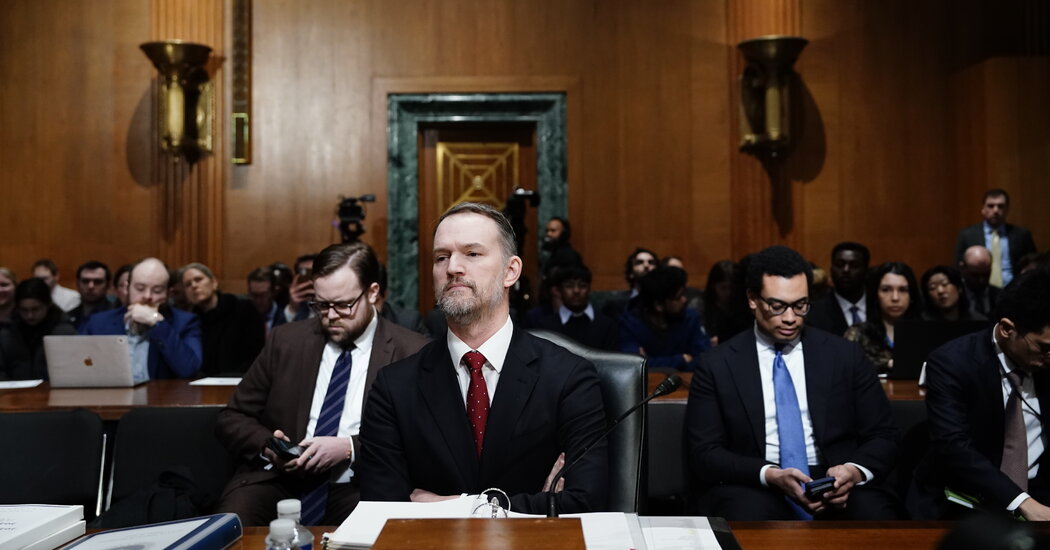President Trump’s top trade official defended the administration’s aggressive tariff moves on Tuesday, arguing before a Senate committee that the U.S. economy is facing “a moment of drastic, overdue change” after decades of being propped up by the financial sector and government spending.
The remarks by Jamieson Greer, the United States trade representative, came as the Trump administration faced blowback from trading partners, businesses and investors over Mr. Trump’s approach. The president’s moves this month to impose a 10 percent global tariff and steep “reciprocal” tariffs on dozens of countries have already triggered a trade war with China and caused other countries to draw up their own retaliation plans. Economists now consider a recession increasingly likely.
Mr. Trump has dismissed those concerns and said he will not back away from his trade agenda, which he says is necessary to return manufacturing and industrial production to the United States. He and his economic advisers have claimed that countries are clamoring to make new trade agreements with the United States and to lower their tariffs and other trade barriers.
In a social media post on Tuesday, Mr. Trump described a call with South Korea’s acting president, Han Duck-soo, about trade and tariffs and that South Korean officials were heading to the United States for talks. He also expressed optimism that a trade war with China could be averted.
“China also wants to make a deal, badly, but they don’t know how to get it started,” Mr. Trump wrote. “We are waiting for their call. It will happen!”
Mr. Greer said in his prepared remarks that nearly 50 countries have approached him to discuss how to “achieve reciprocity on trade.”
“Our large and persistent trade deficit has been over 30 years in the making, and it will not be resolved overnight, but all of this is in the right direction,” Mr. Greer said.
U.S. stocks rebounded on Tuesday after several days losses and increased trading volatility as investors grappled with the possibility of supply chain disruptions, inflation and a global recession spurred by Mr. Trump’s tariffs.
Treasury Secretary Scott Bessent, who was viewed by Wall Street as a potential voice of moderation on tariffs, tried to calm markets on Tuesday by saying that more than 70 countries had reached out to negotiate tariff reductions.
“I think you are going to see some very large countries with large trade deficits come forward very quickly,” Mr. Bessent told CNBC. “If they come to the table with solid proposals, I think we can end up with some good deals.”
However, the Treasury secretary assailed China for retaliating against the United States with tariffs of its own and warned that America has more leverage in a trade war with the world’s second largest economy.
“What do we lose by the Chinese raising tariffs on us?” Mr. Bessent said. “We export one-fifth to them of what they export to us, so that is a losing hand for them.”
During the trade fight with China in Mr. Trump’s first term, the United States ended up having to spend about $23 billion after China imposed high retaliatory duties on soybean, corn, wheat and other American imports beginning in 2018.
